Middle East
Syria says it rejects ‘foreign intervention’ after Israeli strikes | News
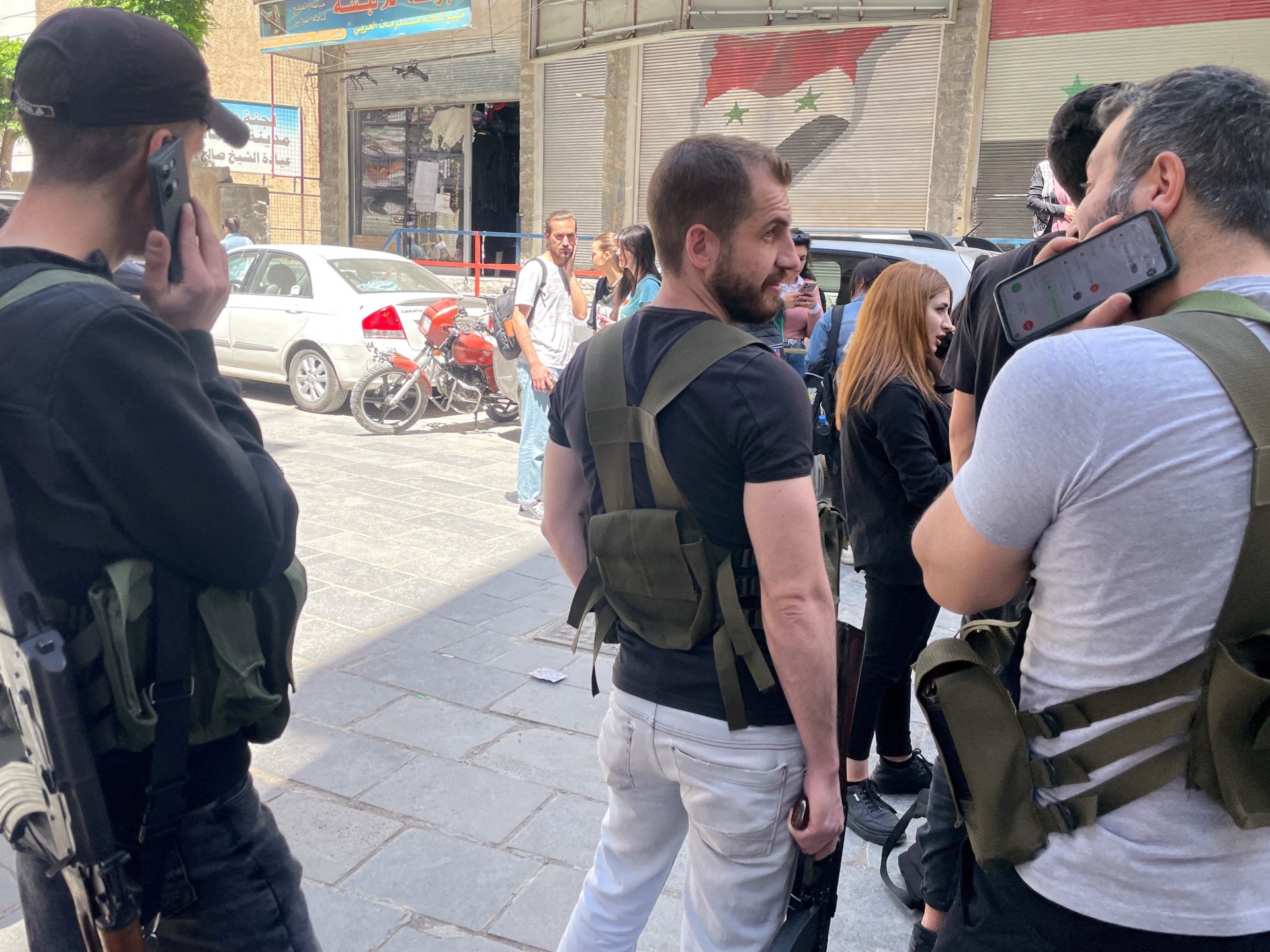
Syrian authorities have decried “foreign intervention” in Syrian affairs after Israel launched air attacks on a town near Damascus where government forces and several other groups had taken part in deadly clashes.
A Syrian Ministry of Interior source told Al Jazeera Arabic that at least four Israeli air strikes targeted security personnel in the mainly Druze town of Ashrafieh Sahnaya on Wednesday.
The Syrian Ministry of Foreign Affairs and Expatriates, in a statement, rejected “all forms of foreign intervention”, but did not explicitly accuse Israel of carrying out the attacks. Syria “affirms its unwavering commitment to protect all components of the Syrian people … including the children of the honourable Druze community,” the Foreign Ministry added in its statement.
Israel said it had carried out a strike in Syria against so-called “extremists” who attacked members of the Druze community, following through on what it said was a promise to protect the minority group.
The military said that three Syrian Druze citizens had been evacuated from Syria to receive medical treatment in Israel.
The strikes came following confrontations between Syrian government loyalists and members of the Druze military council that killed dozens of people in two days.
The director of security for the Damascus countryside, Hussam al-Tahhan, told Syria’s state-run SANA news agency that a security operation was launched there and that reinforcements were sent to ensure the return of “security and stability” to the area’s neighbourhoods.
At least 16 security forces and six fighters were killed on Wednesday, according to the Syrian Observatory for Human Rights, a UK-based war monitor. At least 17 people, including 10 security forces, were killed on Tuesday.
‘Extreme panic’
Israeli Prime Minister Benjamin Netanyahu said the strike on the town of Ashrafieh Sahnaya sent a “stern message” to Syria’s new government, led by interim President Ahmed al-Sharaa.
“Israel expects them to act to prevent harm to the Druze community”, he said.
Israel’s armed forces chief later ordered the military to prepare to strike Syrian government targets if the Druze community faces more violence.
Syrian Druze leaders have repeatedly rejected Israeli intervention and declared their loyalty to a united Syria.
The latest violence erupted on Tuesday with clashes between Druze and Sunni groups in the predominantly Druze area of Jaramana, ignited by an audio clip attacking the Prophet Muhammad that was circulated on social media.
The recording was attributed to a Druze leader. The spiritual authority for the Druze community in Jaramana condemned the recording, insisting it was fabricated “to incite sedition and sow division among the people of the same nation”.
Syria’s new rulers, former opposition fighters who led the rebellion that overthrew longtime ruler Bashar al-Assad in December, have struggled to maintain security for the country’s minorities, despite urging national unity and inclusivity.
Since al-Assad was overthrown in December, Israel has launched hundreds of strikes into Syria, stepping up attacks that it also carried out routinely in previous years, and has deployed troops to a United Nations-patrolled buffer zone on the occupied Golan Heights.

The latest incidents only serve to increase the sectarian tension in Syria, with minorities already on edge following horrifying bloodshed last month.
After al-Assad loyalists from the Alawite community clashed with security forces in March, hundreds of people were killed in a wave of vigilante attacks in the northern areas of Tartous and Latakia governorates.
UN calls for restraint
Residents of Sahnaya reported intense street fighting throughout Wednesday.
“We’re in extreme panic and fear because of the indiscriminate shelling, which is forcing most of us to stay totally shuttered inside our homes,” said Elias Hanna, who lives on the edge of Sahnaya.
“We’re worried that the massacres of the coast will repeat themselves near Sahnaya against the Druze,” he said.
Geir Pedersen, UN special envoy to Syria, is “deeply concerned” by violence in the country, especially in the suburbs of the capital Damascus and in Homs,” the United Nations said.
He called for immediate measures to ensure the protection of civilians and prevent incitement of communal tensions.
The UN Secretary-General Antonio Guterres said in a statement he was “deeply concerned by Israel’s airstrikes on Syrian territory” and called on “all concerned to exercise utmost restraint”.
Turkiye’s Ministry of Foreign Affairs demanded that Israel “cease its aerial strikes” on Syria.
“At this sensitive time for Syria, the duty of the international community is to contribute to the establishment of security and stability in Syria,” ministry spokesperson Oncu Keceli said in a statement. “Given this context, Israel must put an end to its air strikes, which are damaging the country’s efforts to achieve unity and integrity.”
Middle East
Syrian Druze leader condemns government over sectarian violence | News
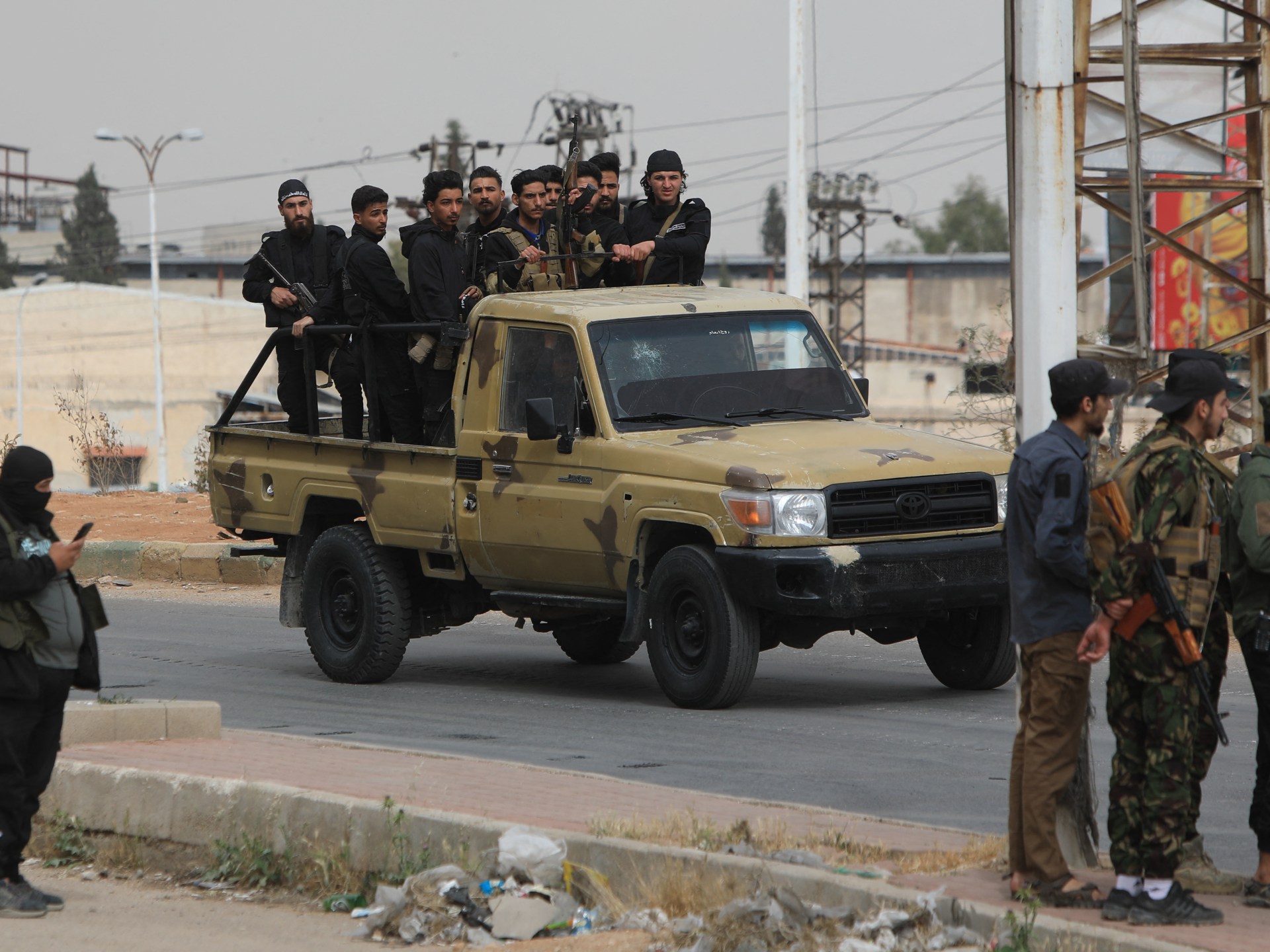
Syrian Druze leader condemns ‘genocidal campaign’ after dozens killed in clashes south of Damascus.
A leader of Syria’s Druze minority has condemned attacks against his community after dozens of people were killed in two days of sectarian clashes south of Damascus.
Sheikh Hikmat al-Hijri on Thursday denounced the violence in Jaramana and Sahnaya near Damascus earlier this week as a “genocidal campaign” against the Druze community in Syria.
Syria’s Ministry of Information said 11 members of the country’s security forces were killed in two separate attacks.
The United Kingdom-based Syrian Observatory for Human Rights (SOHR), a war monitor, said at least 101 people were killed in fighting between security forces, allied fighters and local Druze groups.
The SOHR, which relies on a network of sources in Syria, said the death toll included 30 government loyalists, 21 Druze fighters and 10 civilians, including Sahnaya’s former mayor, Husam Warwar.
In the southern province of Sweida, heartland of the Druze minority, it said 40 Druze fighters were killed, 35 in an “ambush” on the Sweida-Damascus road on Wednesday.
The clashes broke out around midnight Monday after an audio clip circulated on social media of a man criticising Islam’s Prophet Muhammad. The audio was attributed to a Druze scholar. But the scholar, Marwan Kiwan, said in a video posted on social media that he was not responsible for the audio, which angered many Sunni Muslims.
On Wednesday afternoon, the Syrian government said a deal was reached between Druze dignitaries and official representatives after which security forces and pro-government fighters entered Sahnaya and Druze gunmen withdrew from the streets.
Videos on social media showed what appeared to be pro-government armed groups beating Druze men they had captured in Sahnaya and making offensive sectarian remarks.
“This collective killing is systematic, clear, visible, and documented,” read al-Hijri’s statement. “We no longer trust a group that calls itself a government, because the government doesn’t kill its own people through extremist gangs that are loyal to it, and after the massacre claims they are loose forces.”
The violence poses a serious challenge to the country’s new authorities, who toppled longtime ruler Bashar al-Assad in December. It comes after a wave of massacres in March in Syria’s Alawite heartland on the Mediterranean coast in which security forces and allied groups killed more than 1,700 civilians, mostly Alawite, according to the SOHR.
Syrian authorities reject foreign intervention
Israeli officials have expressed support for the Druze, with Defence Minister Israel Katz warning his country would respond “with significant force” if Syria’s new authorities fail to protect the minority community.
In a later statement, Katz said, “Should the attacks on the Druze resume and the Syrian regime fail to prevent them, Israel will respond with significant force.”
Foreign Minister Asaad al-Shaibani on Thursday reiterated Syria’s rejection of demands for international intervention, posting on X that “national unity is the solid foundation for any process of stability or revival”.
“Any call for external intervention, under any pretext or slogan, only leads to further deterioration and division,” he added.
Most Druze spiritual leaders and factions have opted to air their grievances in closed communication with the new government, but concerns have heightened after a crackdown on al-Assad loyalists in Syria’s coastal province turned into a series of targeted revenge attacks against the Alawite minority group.
Videos widely circulated of houses burned down and bloodied bodies of Alawite on the streets. Tens of thousands of Alawite fled south to neighbouring Lebanon, and many are too scared to return.
The Druze have since become reluctant to lay down their arms, which they say they need for protection.
Middle East
Why are relations between Algeria and France so bad? | Politics News
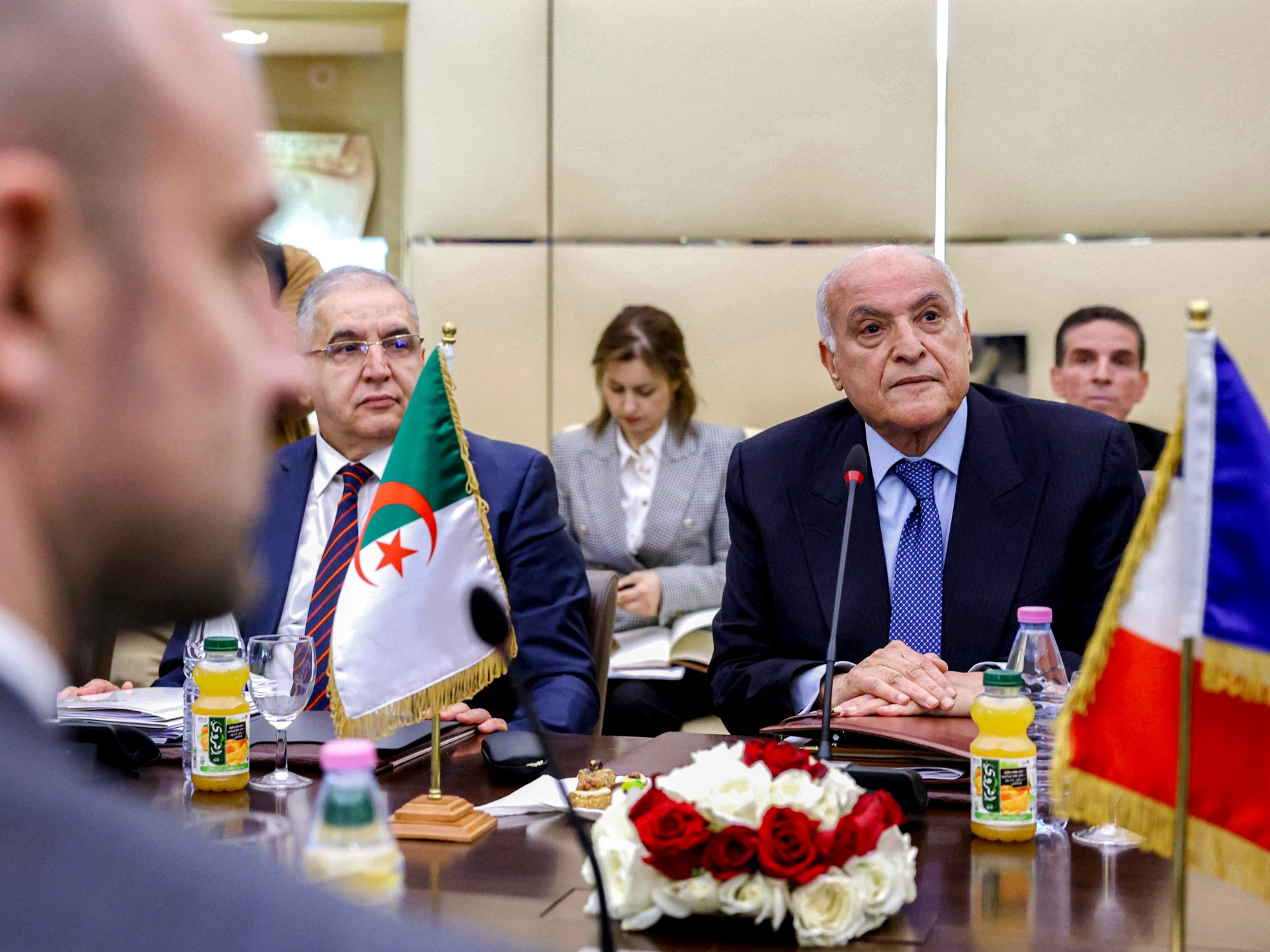
Relations between Algeria and its former coloniser, France, have rarely been straightforward.
After hitting a low point in July when France supported Algeria’s regional rival Morocco over its claim to the disputed territory of the Western Sahara, relations appeared to be recovering.
But then the April arrest in France of an Algerian consular official along with two other men for alleged involvement in the kidnapping near Paris of Algerian government critic Amir Boukhors has triggered a new wave of tensions.
So why are diplomats now being expelled, and what does this mean for relations between Algeria and its former coloniser?
Let’s break it down:
Who is Amir Boukhors?
Boukhors, or Amir DZ, is an Algerian online influencer and critic of Algerian President Abdelmadjid Tebboune with more than 1 million subscribers on TikTok.
The French government gave Boukhors political asylum in 2023.
But as far as the Algerian government is concerned, he’s a fraudster and a “terrorist”, who they’ve been seeking to extradite from France since 2016.
Algeria has tried to extradite Boukhors nine times. All attempts have been declined by France.
Why would an Algerian consular official allegedly want to kidnap him?
Speaking to the newspaper Le Parisien in an interview published on April 9, Boukhors said that on returning to his home in Val-de-Marne near Paris during the evening of April 29, 2024, he was stopped by an unmarked car with flashing lights.
Four men in civilian clothes handcuffed him and threw him into the vehicle.
“They first told me that an Algerian official wanted to talk to me, that that was why they were taking me. Then they told me the plan had changed and that I was going to Amsterdam,” Boukhors told the newspaper.
Boukhors said he was then forced to swallow sleeping pills and was held in a “container” for more than 27 hours before being released without explanation.
A subsequent investigation by France’s counterespionage agency uncovered information leading to the arrest on April 11 of three men with a fourth still reportedly at large.

No information has been released about two of the men. However, the third was an Algerian consular employee, French officials said.
Algeria issued a statement the following day strongly denying its official’s involvement and protesting the person’s arrest “in public … without notification through the diplomatic channels”.
The statement denounced what it charged was a “far-fetched argument” based “on the sole fact that the accused consular officer’s mobile phone was allegedly located around the home” of Boukhors.
All three suspects were later charged with “kidnapping or arbitrary detention … in connection with a terrorist undertaking”.
What was the diplomatic response?
On April 14, Algeria announced that 12 French consular officials had 48 hours to leave the country.
The statement, read on public television, confirmed the expulsions had been ordered in response to France’s arrest of the Algerian official.
According to the statement, the arrest had been intended to “humiliate Algeria, with no consideration for the consular status of this agent, disregarding all diplomatic customs and practices”.
France responded in kind the following day, expelling 12 Algerian consular officials from its territory and recalling its ambassador from Algiers.
A statement from the office of French President Emmanuel Macron described the Algerian decision as “incomprehensible and unjustified” and said Algiers should “resume dialogue” and “take responsibility for the degradation in bilateral relations”.
Why have relations between France and Algeria historically been poor?
France colonised Algeria for 132 years, killing Algerian civilians and creating a class structure in which European settlers and their descendants were on top.
The French refused to leave Algeria, considering it an integral part of France. It was only after a war of independence that France finally left in 1962. Algeria is still referred to as the “country of a million martyrs” because of the number of people killed by France during the fight for independence.
But the dispute has not ended there. The issue of the Western Sahara is also causing tension, not just between France and Algeria but also across North Africa.
Western Sahara – a disputed territory in northwestern Africa – is at the centre of the poor relations between Algeria and Morocco. Rabat claims the territory as its own and occupies the majority of it while Algeria supports the pro-independence Polisario Front and has taken in tens of thousands of Sahrawi refugees.
What has France’s position on the Western Sahara been?
France has largely backed Morocco – despite the United Nations not recognising Rabat’s sovereignty over the Western Sahara. And last year, Macron said France’s position was that it supported Moroccan sovereignty over Western Sahara.
At the time, Algeria voiced its “deep disapproval” of France’s “unexpected, ill-timed and counterproductive” decision to endorse Morocco’s autonomy plan for Western Sahara and recalled its ambassador.
However, relations between the two were thought to be improving since then.
Speaking in early April after a series of talks intended to restore relations after the rift, French Foreign Minister Jean-Noel Barrot said: “We are reactivating as of today all the mechanisms of cooperation in all sectors. We are going back to normal and to repeat the words of President Tebboune: ‘The curtain is lifted.’”
But the Boukhors case and the diplomatic expulsions that have followed it have made it clear that the curtain has fallen right back down.
Middle East
Al Jazeera wins two Peabody Awards for documentaries on Gaza war carnage | Gaza News
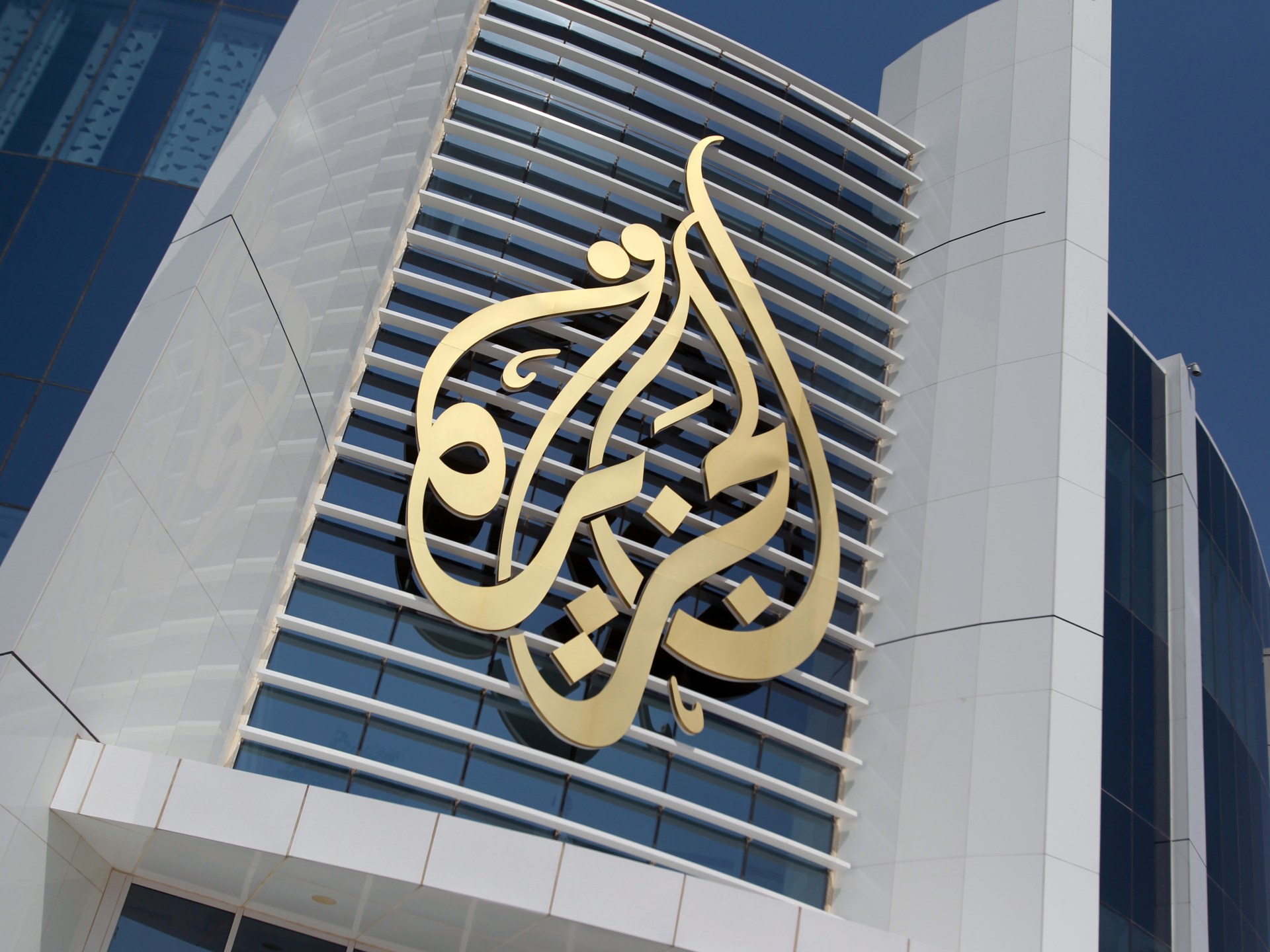
Fault Lines wins in News & Documentary category while Close Up wins in Interactive & Immersive category.
Al Jazeera Media Network has been honoured with two prestigious Peabody Awards, one of the most esteemed accolades in broadcast storytelling.
The awards recognise the Al Jazeera English Fault Lines documentary The Night Won’t End in the News & Documentary category, and the Al Jazeera English Digital film One Day in Gaza from the series Close Up, in the Interactive & Immersive category.
The 85th annual Peabody award winners were announced on May 1, 2025, in advance of its annual ceremony in Los Angeles on June 1, 2025.
The awards honour intelligent, powerful and moving stories told in broadcast and digital media.
Al Jazeera English’s Fault Lines documentary The Night Won’t End uncovers the tragic human cost of war. It depicts the realities of the unrelenting Israeli bombing campaign on Gaza, the unsafe “safe zones,” and arbitrary executions through the eyes of three families during the initial 15 months of the war.
The film investigates the death of five-year-old Hind Rajab, who was waiting to be rescued from a car where her family members had already been shot dead. Two medics dispatched to rescue her were also killed, as verified by a forensic watchdog agency.
Laila Al-Arian, executive producer of Fault Lines, stated, “No single piece can fully capture the scale of the atrocities in Gaza, but we aimed through investigative journalism and on-the-ground storytelling to offer a glimpse of what life has been like. We are honoured by this recognition because it helps bring more attention to a continuing story the world needs to see. Though we filmed this over a year ago, the horrors we documented remain a daily reality for more than 2 million Palestinians in Gaza.”
To date, The Night Won’t End has garnered multiple awards, including in the coveted International Current Affairs category at the Royal Television Society Awards in the United Kingdom, the Overseas Press Club prize for best TV, video or documentary about international affairs, and the long-form award from the Centre for Information Resilience Open-Source Film Awards.
The One Day in Gaza film from the series Close Up is a compilation of videos recorded by 10 individuals in Gaza, who were asked to document moments throughout their day, thereby helping viewers understand the immense hardships and constant dangers faced by Palestinians living under the constant bombardment in Gaza.
Juan Carlos Van Meek, director of digital innovation and programming, expressed his gratitude for awarding the team the Peabody Award, stating, “I am immensely proud of our team’s relentless efforts in amplifying the humanity of Palestinians living in Gaza under constant bombardment. Through the brave voices of people on the ground, we have captivated millions of viewers and helped sustain global attention on the ongoing genocide, ensuring their stories are not forgotten.”
The recognition of these documentaries underscores Al Jazeera’s commitment to highlighting the profound human experiences amid conflict.
As the situation in Gaza continues to unfold, The Network remains dedicated to shedding light on the stories that matter, ensuring that the voices of those affected are heard on a global platform.
-
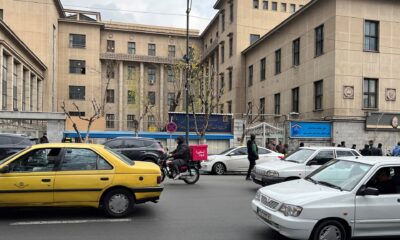
 Middle East2 days ago
Middle East2 days agoIran hangs man convicted of spying for Israel’s Mossad | Espionage News
-
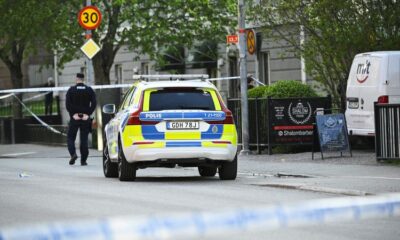
 Europe2 days ago
Europe2 days ago16-year-old suspect detained after 3 killed in shooting in Sweden
-
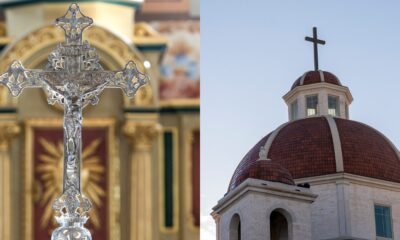
 Education2 days ago
Education2 days agoSupreme Court considers endorsing country’s first religious public charter school
-

 Europe2 days ago
Europe2 days agoA 400-year-old tea and coffee shop faces closure in Amsterdam as tourism stokes price rises
-
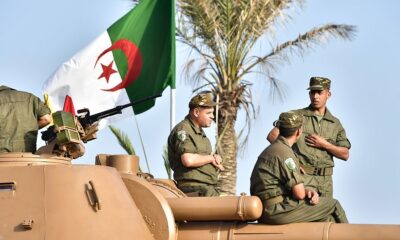
 Africa2 days ago
Africa2 days agoAlgeria to unveil military mobilisation bill amid regional tensions
-

 Sports2 days ago
Sports2 days agoLuka Dončić donates entire cost of restoring vandalized Kobe Bryant mural in downtown Los Angeles
-

 Conflict Zones2 days ago
Conflict Zones2 days ago‘Exiled’: India-Pakistan families split as border shuts over Kashmir attack | India-Pakistan Partition
-

 Middle East2 days ago
Middle East2 days agoUK joins US air strikes on Houthi rebel sites in Yemen | Houthis News




